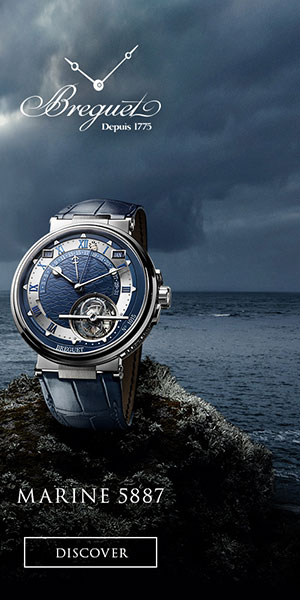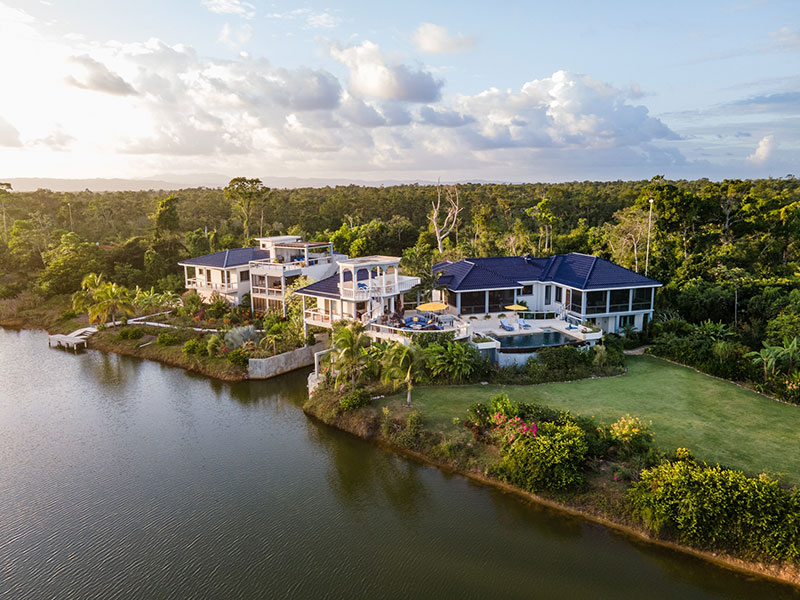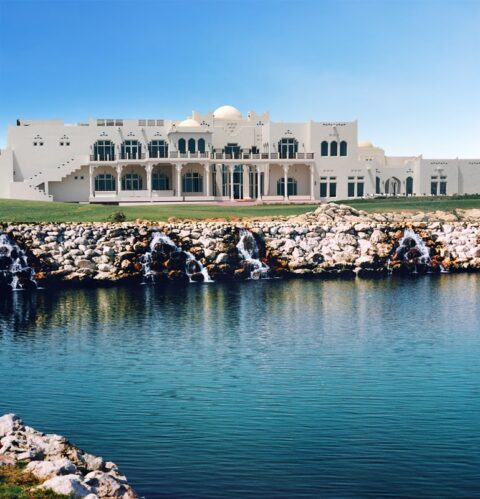What do you do when you are the son of a famous television and film actor? You become the CEO of a rising entertainment business, naturally. Morgan Margolis may have had aspirations of following his father, Mark’s, footsteps, but the younger Margolis found his own niche in life. Margolis is the quintessential self-made man, rising up through the ranks as a bartender to manager to CEO of a major player in the entertainment, food and arts industry.
Starting out in New York City, Margolis worked every bar job possible until he relocated to Los Angeles in 1993. It was there that his “American Dream” story came true, as he worked his way up through Knitting Factory Entertainment from general manager to vice-president. Since 2008, Margolis has been the CEO of Knitting Factory Entertainment, and under his watch, the company has expanded to areas it was once believed it would never occupy.
With a background in bar and music venue management, Margolis continues to take Knitting Factory Entertainment further into the future. Not only has the group changed the face of music and entertainment, but it has become a leader in other areas, thanks to a man that once dreamt of being on the silver screen.
Morgan, please tell us about Knitting Factory Entertainment and the extended services you provide?
KFE is best described as a 360-degree music and hospitality entertainment company. The company has been around since 1987 in New York City, originating as an avant-garde jazz club. Since then, we’ve expanded to encompass multiple Knitting Factory music venues, other non-branded stand-alone venues, three restaurant concepts, two record labels, a management company, a national touring division and ownership stakes in a multitude of other business including: a brewery, hotel, experiential marketing company, theatrical management, venue consulting and branded food and celebrity chef management companies.
From actor to managing music clubs, from where and when do the ideas come?
After graduating from New York’s High School of Performing Arts in 1984, I went off to Stony Brook University to actually step away from acting and pursue law. In the end, I found it tedious and decided to go back to acting. After graduation, of course, I needed a job, and was fortunate enough to get some great bar gigs. Also, early on, I was lucky to work as an actor in episodic television, but, coming from an acting family (my father is famed character actor Mark Margolis), acting started to feel more a drudge job for me and the passion wasn’t as strong as I had hoped. I equate it to being the son of a lawyer or doctor, and following in the family business or profession. I honestly loved the restaurant business, some of what was born from my passion of all arts, people, architecture, design and history. Growing up in NYC’s Tribeca, I spent a lot of time watching the conversions from warehouses to live/work lofts. I was always fascinated by the transformation, yet keeping within the historic patterns of the properties. In my teen years, I also spent a summer traveling across Ireland with three friends. As we biked from one town to another, fifteen-years old, yet looking older, we spent a lot time in the pubs. I got a great taste for Guinness, bar culture, and again, design.
I started bopping around NYC, working at a multitude of bars, restaurants, and nightclubs, and I covered every job: bartender, waiter, security, kitchen, management, operations manager, talent buyer, events planner. You name it, I did it. In 1993, my then-girlfriend (who’s my wife now) and I decided to move to Los Angeles. The first place I landed in LA was as the bar manager at a little bar in Pasadena called Abiento. Then, I moved to a night club in LA called Aftershock, from there I went to Luna Park in West Hollywood. Luna was an interesting experience. A multi-tiered venue with music (one of my other loves), restaurant, comedy and entertainment. I ran bars and ops there for a few years, then in 2000, I went over to the new Knitting Factory Hollywood as my old GM and boss needed help getting operations there under control. Knitting Factory was a state of the art, 1000-capacity, three-room music venue. In 2004, I became the GM, and in 2007, I became VP of West Coast Operations, overseeing the expansion of Knitting Factory Hollywood to Boise and Spokane. That same year, I was promoted to VP of National Operations, adding the Knitting Factory NYC to my brief. In 2008, I took over as CEO. October marks the beginning of my 18th year on the road with the company.
What’s next in your calendar of upcoming festivals?
We just had an amazing run at Big Sky Brewery Amphitheatre, our newly built, 6,000-capacity outdoor space in Montana. We just completed Horton’s Hayride, a rockabilly fest in San Pedro, California. Next up is Desert Daze, a four-day alternative music festival in Joshua Tree, California. I’m very proud of this partnership with Spaceland and Moon Block. Our 2017 headliner is Iggy Pop.
What is the most challenging part of your work?
My job has really grown to become a portfolio manager. We have so many varying units now, each with different revenue models. Days can be daunting flipping the switch in my brain from looking at a record label spread sheet, to say, a national tour offer, or one of our restaurant units. Also, juggling multiple personnel nationally, and dealing diplomatically with everyone’s personalities. I sometimes say, “80% of my job is psychology” at this point.
What was your most rewarding professional experience?
It’s been a long road for me to get here. It’s always hard to pinpoint a “most rewarding professional experience”. But honestly, I’d say it was the day after our old CEO left the company and our main investor called me and offered me the CEO seat. It also meant that the rest of the senior executives in the company were behind me to take the reins. I’m both proud and humbled eight years later.
How do you find inspiration?
I truly trust my instincts. I read a great deal, I watch shifting local neighborhoods and global trends. I pay attention to other leaders, like Richard Branson and the directions he’s steered Virgin. I listen to my wife (don’t tell her that). I’m inspired by the spark I see in people and I pay attention to ideas from anyone. My door is always open, I really don’t care what level you are in the corporate structure of our company, or outside, if you are inspired by something and you want to put it on the table, I’m here to listen. It may not always be a fit, or the strategic path we have mapped, but take your shot. I only stand here, because I was tenacious and still am. I do my best to not live in the past and get blocked by what was: listen, learn, move forward.
Tell us how Knitting Factory Entertainment began and what some of the highlights have been.
Essentially the original Knitting Factory was an old textile factory on Houston Street in NYC, 1987. A collective of artists wanted a safe place to work on their music. Hence, Knit. The Knit collective morphed into Knitting Factory. Contrary to company folklore stating it was a sweater factory, it wasn’t. This year marks our 30th year.
Highlights…. there are so many. Moving Knitting Factory Manhattan to Knitting Factory Brooklyn. Launching a hospitality division with The Federal in 2011 in North Hollywood. Partnering up with iconic promoter Spaceland. Having our Desert Daze Music Fest voted one of the top US festivals last year and “the future of music festivals”, according to one writer. Opening up Big Sky Brewery Amphitheatre this year in Missoula, Montana. Knitting Factory Records partnering with Partisan Records. So many…
What do you have your sights set on next?
I would love to place a few more Knitting Factory concert houses around the country as well as multiple Federal and EL Tejano restaurants. Grow our music festival and touring platforms.

Were you ever influenced by other entrepreneurs?
My grandfather was my true inspiration, and he was old school. Born in the early 20th century, from a poor Jewish Boston background. He moved to Queens, New York in his teens and worked for a meatpacking and produce company. Later in life, he took over the company. He always said: “work hard, live honestly, keep a buck in your pocket and always open a door for a lady.” Pretty simple.
What is a day in your life like?
Every day is different in my work life. Home life, not so much. Wake up, get the kids lunch, drive them to school. Exercise, go to work. I love my job, because it’s continually changing. I do a lot of phone calls with the executive team in NYC, Ohio, Boise [Idaho], and other locations, unit by unit breakdowns of financials and goals. I develop and implement strategic initiatives, varying based on the specific business. The job of the CEO is continued planning, growth, business development, and staying a few steps ahead of the trends. And, I can’t forget damage control; there’s always something in our business bubbling.
What makes you smile?
My wife and kids. Yeah, it’s cliché, but it’s a reality. I’ve been happily married for 23 years this October with three sons, ages eight, 15 and 18. But in business, when something you’ve dreamed of and envisioned actually becomes a reality and you see it, you can touch it. From my head or my team’s brains to the finish line and it’s successful. I’m extremely proud of the team around me.
What scares you?
I didn’t grow up with money, and it wasn’t until around 40 that I actually started paying back debt and saving. I still feel behind at 50. Somehow losing it all and ending up bartending again at 60, it gives me nightmares. Let me be clear, there’s nothing wrong with bartending, I just did my time. That sounds like prison, right?
What is your greatest achievement?
In terms of Knitting Factory specifically, I would have to say launching our hospitality division. We were a specific music venue and touring company. I wanted to bring another source of revenue and dimension to our company. Overall, it has worked very well.
What is your secret talent?
Football, NFL aspirations… it’s a bit late. Secondary, reading a room. I think I have an amazing amount of intuition and understanding of people around me. Maybe it’s old acting training or maybe growing up in rough neighborhoods as a child of the 70s in New York City.
Which historical figure do you most admire?
Honestly, I don’t really have one specifically. Benjamin Franklin always blows my mind. I just can’t wrap my head around how much he achieved in his lifetime. I tend to be enamored more with writers, guys like Pete Hamill. I’m a huge fan of his novels.
Any hobbies?
Hiking, anything outdoors and architecture. I love old buildings and houses. You’ll see it in our music venue and restaurant conversions.
What are you never without?
A good watch and a picture of my kids.
Choose two of your favorite quotes and write them here
I have one favorite quote and it’s from Steve Jobs. I keep it in my wallet.
“No one wants to die, even people who want to go to heaven don’t want to die to get there. Your time is limited, so don’t waste it living someone else’s life. Don’t be trapped by dogma, which is living with the results of other people’s thinking. Don’t let the noise of others drown out your inner voice. Have the courage to follow your heart and intuition. They somehow already know what you truly want to become.”
How do you define success?
One word: Respect. If you’ve moved the needle in something you love, whatever that may be, and the people around you respect your choices, even if they don’t always agree, you’ve succeeded.
What advice would you give to anyone starting a new business?
Don’t involve yourself in something you don’t know, understand or have a passion for. Everyone seems to want to go into the restaurant and/or music business in some way. It looks exciting from the outside, and it can be. But it is extremely difficult. Do your research, take a job within that business and learn it, live it, and if you still love it, dive in. You have to take risks, and if you’re afraid to take chances, it’s the wrong place to be. If you fail, and rest assured you may, pull your head out of the sand and reboot! Don’t give up. I’ve lost everything once. It happens.
Anything else you’d like to add?
Listen to the people around you, even if you don’t always agree. Your co-workers, your family, they all want to be heard, and really pay attention, and if you need to change, make the change. Don’t let your ego override your ability to see clearly, I’ve been there. We get so deep in our plan and the golden ring we may be after that we blindly move forward sometimes. If that happens, and you know it, don’t be afraid to apologize and adjust your direction. Vulnerability is a key asset for a leader, and admitting you were wrong will pay off in the long run.
Knitting Factory Entertainment has been in business for over 25 years, and is one of the leaders in music and promotion. For more information on Morgan Margolis and the Knitting Factory, please visit www.KnittingFactory.com








